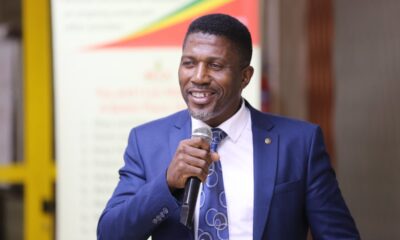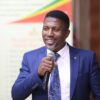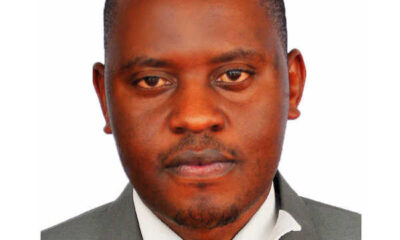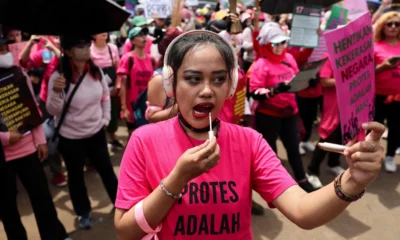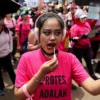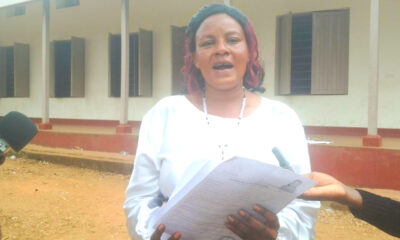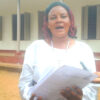News
US rallies Africa against North Korea, changing constitutions for selfish reasons
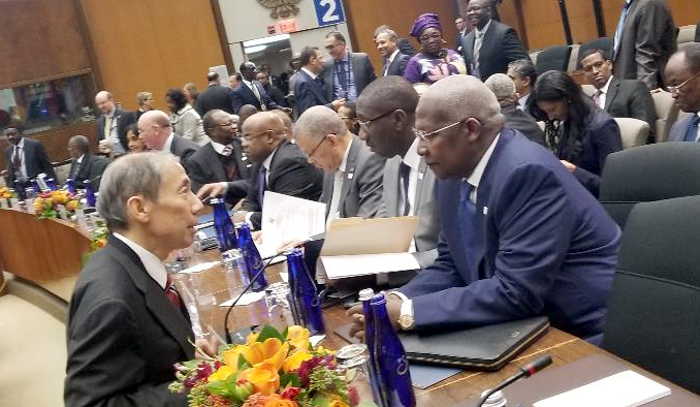
Minister Sam Kutesa seated right, engaging Ag.-Asst.Secretary of State for African Affairs Amb. Donald Yamamoto at the meeting
The US Secretary of State Rex Tillerson has urged African governments to isolate North Korea for violating UN resolutions on the banned testing of ballistic missiles.
Tillerson made the call on Friday November 17, 2017 while meeting Ministers of Foreign Affairs from the African continent in Washington DC.
Held under the banner: ‘Ministerial on Trade, Security, and Governance in Africa’, Tillerson used the meeting to underscore the need for African governments to fully implement the United Nations Security Council resolutions against the Democratic People’s Republic of Korea (DPRK), whose actions including frequent missile tests have been deemed a global security threat.
The meeting comes at a time of heightened tensions between the US and DPRK, as exemplified by the movement of war weapons in the Korean peninsula and the firing of rockets by DPRK over Japan.
“Let me stress that the United States seeks greater support from our African partners on growing global security matters, including North Korea.
“We appreciate the statements condemning the DPRK missile launches that many of your governments have made. But all nations must act to implement UN sanctions in full and cut off all UN-proscribed ties,” Tillerson said, adding that:
“Further, I urge you to take additional measures to pressure the DPRK by downgrading your diplomatic relationships with the regime, severing economic ties, expelling all DPRK laborers, and reducing North Korea’s presence in your country in all other ways it may be found.
“The DPRK presents a threat to all of our nations. Everyone – including each country represented here today – must play a part in this peaceful pressure campaign to convince the DPRK that the only way to achieve true security and respect from the international community is to abandon its current path and choose a meaningful dialogue about a different future.”
In recent years, the UN Security council has passed several resolutions prohibiting countries from dealing with North Korea.
Despite Uganda’s strong ties to the communist regime in Pyongyang, Kampala was forced to saver ties with DPRK by expelling military trainers and doctors that have been working with the security forces for many years.
Tillerson on changing Constitutions
While hailing what he called record new levels in Trade and Investments between African and the Tillerson used the same meeting to address some aspects of bad governance that have cropped up in different parts of the continent.
He said: “Corruption and weak governance, restriction on human rights and civil society, and authorities who ignore the rule of law and change their constitutions for personal gain are all obstacles to the development of prosperous, free societies.”
“In fact, an African Union study estimated that corruption costs the continent roughly $150 billion a year. This is money that should be used to create jobs, build schools and hospitals, improve security, and provide social services,” he added.
On the prime subject of US trade ties with Africa, Tillerson hailed what he called growth, noting that U.S. exports to Sub-Saharan Africa have grown from $17 billion in 2010 to $57.5 billion to date.
“Our trade and investment is stronger than it’s ever been, and the United States sees even more opportunity ahead in the coming years,” he added.
Uganda’s Foreign affairs minister Sam Kuteesa thanked the new U.S. administration for the new focus on business with Africa and spirit of dialogue calling it “a breath of fresh air”.
He enumerated the various investment opportunities in Uganda especially in Agriculture and agricultural processing, mining, oil and gas, tourism and general manufacturing. A statement from Uganda’s ministry of foreign affairs noted.
Comments



